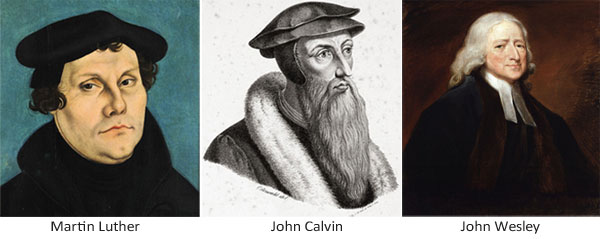
Commentaries include the uninspired reflections of men who often read the Bible through their own preconceived filters based on their religious backgrounds. This list includes commentaries by denominational founders and religious scholars who may lack a complete understanding of the gospel truth. Consider their views carefully in the context of the actual Word of God. For more detailed insights into the value of commentaries, download Chris Reeves’ PowerPoint presentation “Commentaries: Their Use and Abuse.”
Complete Bible
Commentary Critical and Explanatory on the Whole Bible
Robert Jamieson, A. R. Fausset and David Brown published their commentary in 1871. It is commonly known as the Jameison-Faussett-Brown Commentary. StudyLight describes it as “a detailed, yet not overly technical, commentary of the Bible that holds to the historic teachings of orthodox Christianity.”
 Commentary on the Bible
Commentary on the Bible
A British Methodist theologian, Adam Clarke took 40 years to complete his commentary on the Bible. He wrote nearly 1,000 pages in the original eight volumes, which reinforced the teachings of Methodist founder John Wesley. Clarke’s commentary played a central role in Methodist theology for two centuries.
Explanatory Notes upon the Old and New Testaments
John Wesley, who along with his brother Charles founded the Methodist movement, turned to writing about the Bible when he was too sick to travel and preach about it. Wesley tackled the New Testament first, publishing his Calvinistic interpretation of it in 1755 and supplementing that commentary with his notes on the Old Testament in 1765.
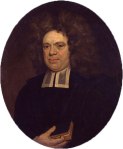 An Exposition of the Old and New Testaments
An Exposition of the Old and New Testaments
Most Bible scholars know this six-volume collection by its informal title, Matthew Henry’s Complete Commentary. Henry started writing it in 1708 and only made it to Acts by the time he died in 1714. Scholars who shared his Presbyterian worldview finished the work. The abridged version, Matthew Henry’s Concise Commentary, is contained within one volume.
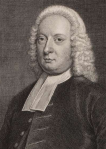 Exposition of the Whole Bible
Exposition of the Whole Bible
English Baptist John Gill, an adherent of Calvinism, penned separate commentaries on the testaments between 1746 and 1763. He started with three volumes of discussion about the New Testament and later added six more volumes on the Old Testament.
Synopsis to the Books of the Bible
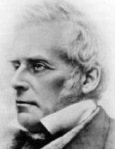 J.N. Darby, a founder and prominent member of the Evangelical Christian Plymouth Brethren, penned these commentaries. He helped popularize the notion of a “rapture” into heaven of believers before “tribulations.” His commentary on the Bible influenced the evangelical movement during the 19th and 20th centuries. Darby also produced his own translation of the Bible based on Hebrew and Greek texts.
J.N. Darby, a founder and prominent member of the Evangelical Christian Plymouth Brethren, penned these commentaries. He helped popularize the notion of a “rapture” into heaven of believers before “tribulations.” His commentary on the Bible influenced the evangelical movement during the 19th and 20th centuries. Darby also produced his own translation of the Bible based on Hebrew and Greek texts.
The Treasury of Scripture Knowledge
The online version of this classic cross-referencing tool makes it possible for Bible students to connect the dots between each verse of the Bible and other relevant passages. The searchable databases contains hundreds of thousands of cross references. Over time the print version of the book, which is about the size of the Bible, became associated with one of its key promoters, R.A. Torrey.
Online Commentaries in Canonical Order
This collection of commentaries at DeeperStudy.com includes some that are not found at other places. The arrangement of the commentaries by books of the Bible makes it easier to compare and contrast different understandings of each book, chapter by chapter.
Partial Collections
Alexander Campbell’s Living Oracles (4th Edition, New Testament)
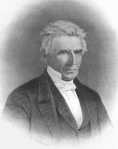 Alexander Campbell had roots in both the Presbyterian and Baptist denominations but eventually became a leader of the Restoration Movement. He authored the Living Oracles in that capacity, in part because of his concerns that the King James Version of the Bible promoted Calvinistic doctrine. Living Oracles — first published in 1826, with subsequent editions in 1828, 1832 and 1835 — is part modern Bible translation and part commentary.
Alexander Campbell had roots in both the Presbyterian and Baptist denominations but eventually became a leader of the Restoration Movement. He authored the Living Oracles in that capacity, in part because of his concerns that the King James Version of the Bible promoted Calvinistic doctrine. Living Oracles — first published in 1826, with subsequent editions in 1828, 1832 and 1835 — is part modern Bible translation and part commentary.
Calvin’s Commentaries
John Calvin was a leader in the Protestant Reformation, and Calvinism is central to the doctrines of multiple religious denominations today. His commentaries covered all books of the Bible except Revelation. Volunteers prepared this electronic version of Calvin’s commentaries for the OnLine Bible project and the Christian Classics Ethereal Library.
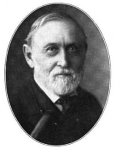 The Fourfold Gospel
The Fourfold Gospel
J.W. McGarvey and P.Y. Pendleton compiled this commentary in 1914 after publishing it in a quarterly format in 1905. “The Fourfold Gospel is an incomparable tool for the study of the life of Christ,” James E. Smith wrote in his editor’s preface for this 2004 edition. “The texts of the four gospels have been woven together.”
The People’s New Testament
The print version of Barton W. Johnson’s commentary, which was published in 1891, includes several bonus features, such as a harmony of the gospels and lists of everything from Jesus’ miracles and parables to Old Testament passages quoted in the New Testament. In addition to discussing the passages verse by verse, Johnson summarizes each book and each chapter.
Books of the Bible
— Notes on Ezekiel, from the original 1599 Geneva Bible Notes
— The Treasury of David, commentary on Psalms by Charles H. Spurgeon
— Commentary on John, by B.W. Johnson
— Commentary on Acts, by J.W. McGarvey
— Commentary on Galatians, by Martin Luther
— Commentary on II Peter, by Ray C. Stedman
— Life and Times of Jesus the Messiah, informal commentary on the four gospels, by Alfred Edersheim
— Various books, by Mark Dunagan (Fifth Street church of Christ, Beaverton, Ore.)
Disclaimer: A listing on this website is not an endorsement of the content as containing truth. Readers should always compare the words of men to the scriptures.

Commentaries
Commentaries include the uninspired reflections of men who often read the Bible through their own preconceived filters based on their religious backgrounds. This list includes commentaries by denominational founders and religious scholars who may lack a complete understanding of the gospel truth. Consider their views carefully in the context of the actual Word of God. For more detailed insights into the value of commentaries, download Chris Reeves’ PowerPoint presentation “Commentaries: Their Use and Abuse.”
Complete Bible
Commentary Critical and Explanatory on the Whole Bible
Robert Jamieson, A. R. Fausset and David Brown published their commentary in 1871. It is commonly known as the Jameison-Faussett-Brown Commentary. StudyLight describes it as “a detailed, yet not overly technical, commentary of the Bible that holds to the historic teachings of orthodox Christianity.”
A British Methodist theologian, Adam Clarke took 40 years to complete his commentary on the Bible. He wrote nearly 1,000 pages in the original eight volumes, which reinforced the teachings of Methodist founder John Wesley. Clarke’s commentary played a central role in Methodist theology for two centuries.
Explanatory Notes upon the Old and New Testaments
John Wesley, who along with his brother Charles founded the Methodist movement, turned to writing about the Bible when he was too sick to travel and preach about it. Wesley tackled the New Testament first, publishing his Calvinistic interpretation of it in 1755 and supplementing that commentary with his notes on the Old Testament in 1765.
Most Bible scholars know this six-volume collection by its informal title, Matthew Henry’s Complete Commentary. Henry started writing it in 1708 and only made it to Acts by the time he died in 1714. Scholars who shared his Presbyterian worldview finished the work. The abridged version, Matthew Henry’s Concise Commentary, is contained within one volume.
English Baptist John Gill, an adherent of Calvinism, penned separate commentaries on the testaments between 1746 and 1763. He started with three volumes of discussion about the New Testament and later added six more volumes on the Old Testament.
Synopsis to the Books of the Bible
 J.N. Darby, a founder and prominent member of the Evangelical Christian Plymouth Brethren, penned these commentaries. He helped popularize the notion of a “rapture” into heaven of believers before “tribulations.” His commentary on the Bible influenced the evangelical movement during the 19th and 20th centuries. Darby also produced his own translation of the Bible based on Hebrew and Greek texts.
J.N. Darby, a founder and prominent member of the Evangelical Christian Plymouth Brethren, penned these commentaries. He helped popularize the notion of a “rapture” into heaven of believers before “tribulations.” His commentary on the Bible influenced the evangelical movement during the 19th and 20th centuries. Darby also produced his own translation of the Bible based on Hebrew and Greek texts.
The Treasury of Scripture Knowledge
The online version of this classic cross-referencing tool makes it possible for Bible students to connect the dots between each verse of the Bible and other relevant passages. The searchable databases contains hundreds of thousands of cross references. Over time the print version of the book, which is about the size of the Bible, became associated with one of its key promoters, R.A. Torrey.
Online Commentaries in Canonical Order
This collection of commentaries at DeeperStudy.com includes some that are not found at other places. The arrangement of the commentaries by books of the Bible makes it easier to compare and contrast different understandings of each book, chapter by chapter.
Partial Collections
 Alexander Campbell had roots in both the Presbyterian and Baptist denominations but eventually became a leader of the Restoration Movement. He authored the Living Oracles in that capacity, in part because of his concerns that the King James Version of the Bible promoted Calvinistic doctrine. Living Oracles — first published in 1826, with subsequent editions in 1828, 1832 and 1835 — is part modern Bible translation and part commentary.
Alexander Campbell had roots in both the Presbyterian and Baptist denominations but eventually became a leader of the Restoration Movement. He authored the Living Oracles in that capacity, in part because of his concerns that the King James Version of the Bible promoted Calvinistic doctrine. Living Oracles — first published in 1826, with subsequent editions in 1828, 1832 and 1835 — is part modern Bible translation and part commentary.
Alexander Campbell’s Living Oracles (4th Edition, New Testament)
Calvin’s Commentaries
John Calvin was a leader in the Protestant Reformation, and Calvinism is central to the doctrines of multiple religious denominations today. His commentaries covered all books of the Bible except Revelation. Volunteers prepared this electronic version of Calvin’s commentaries for the OnLine Bible project and the Christian Classics Ethereal Library.
J.W. McGarvey and P.Y. Pendleton compiled this commentary in 1914 after publishing it in a quarterly format in 1905. “The Fourfold Gospel is an incomparable tool for the study of the life of Christ,” James E. Smith wrote in his editor’s preface for this 2004 edition. “The texts of the four gospels have been woven together.”
The People’s New Testament
The print version of Barton W. Johnson’s commentary, which was published in 1891, includes several bonus features, such as a harmony of the gospels and lists of everything from Jesus’ miracles and parables to Old Testament passages quoted in the New Testament. In addition to discussing the passages verse by verse, Johnson summarizes each book and each chapter.
Books of the Bible
— Notes on Ezekiel, from the original 1599 Geneva Bible Notes
— The Treasury of David, commentary on Psalms by Charles H. Spurgeon
— Commentary on John, by B.W. Johnson
— Commentary on Acts, by J.W. McGarvey
— Commentary on Galatians, by Martin Luther
— Commentary on II Peter, by Ray C. Stedman
— Life and Times of Jesus the Messiah, informal commentary on the four gospels, by Alfred Edersheim
— Various books, by Mark Dunagan (Fifth Street church of Christ, Beaverton, Ore.)
Disclaimer: A listing on this website is not an endorsement of the content as containing truth. Readers should always compare the words of men to the scriptures.
Share this: